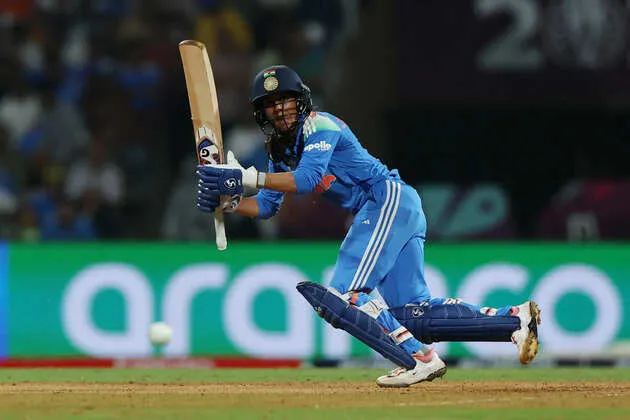
In the aftermath of India’s sensational semi-final win at the 2025 ICC Women’s Cricket World Cup, a different kind of story has captured the public’s attention — one that transcends sport. Jemimah Rodrigues, the star of that historic chase, opened up about her ongoing battle with anxiety, and her honesty drew heartfelt praise from Bollywood icon and mental-health advocate Deepika Padukone. The exchange has become emblematic of how elite women athletes are breaking the stigma surrounding mental health in competitive sport.
Rodrigues’ revelation came as a surprise to many. Despite her match-winning 127* in the high-pressure semi-final, she shared that the journey through the tournament had been emotionally exhausting. She admitted to experiencing moments of intense anxiety and self-doubt after being left out of earlier matches. She spoke candidly about how she had been “crying every day,” struggling internally while trying to stay composed on the outside for her teammates and fans. Her openness shattered the common illusion that athletes, particularly those performing at their peak, are immune to emotional strain.
Deepika Padukone, who has been one of India’s strongest public voices on mental health, responded with empathy and appreciation. She thanked Rodrigues for her bravery in speaking up and acknowledged how such honesty could inspire others to seek help and embrace vulnerability. Having herself spoken publicly about her own battles with depression, Padukone’s acknowledgment added weight and visibility to Rodrigues’ message, bridging two powerful platforms — sport and mental wellness advocacy.
This moment is significant because it highlights a long-overdue cultural shift in how mental health is viewed within elite sport. Traditionally, athletes have been conditioned to “tough it out” — to suppress emotion and treat mental health as a private weakness rather than a public truth. Rodrigues’ decision to speak out directly challenges that outdated notion. Her story underlines that even champions experience fear, anxiety, and self-doubt, and that mental resilience doesn’t mean being unaffected — it means acknowledging struggle and still performing through it.
Padukone’s recognition also reinforces that mental health discussions must move beyond token gestures. It’s not enough for athletes to speak up; systems must exist to support them. Sports authorities, coaching staff, and national boards need to normalise access to mental-health professionals and create safe spaces where players can be open without fear of judgement or career repercussions. Rodrigues’ story, and Padukone’s endorsement of it, have reignited conversation about how seriously cricket — particularly women’s cricket — takes the emotional well-being of its players.
The intersection of mental health, sport, and public advocacy is now more visible than ever. In a single act of vulnerability, Rodrigues showed that strength and struggle can coexist; in one public message of support, Padukone helped amplify that truth to millions. Together, they have reframed what resilience looks like — not the absence of anxiety, but the courage to confront it.
In a sport that often celebrates only results, this moment has reminded the world that emotional honesty can be just as powerful as any century scored.
12BET Shortlisted for Sportsbook Operator of the Year at SBC Awards 2025

